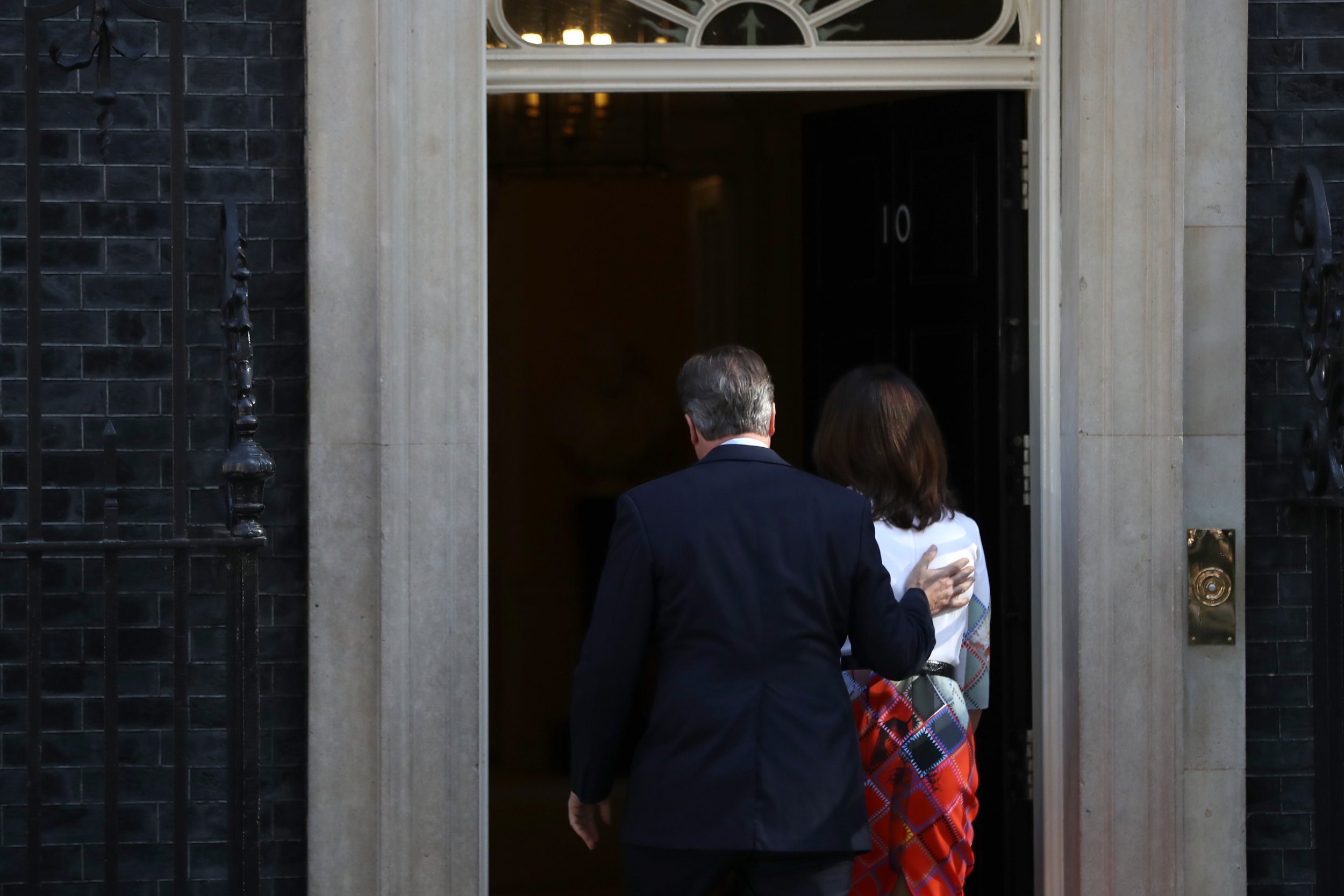
British Prime Minister David Cameron has announced he will resign in the wake of the U.K.'s vote to leave the European Union.
Cameron, who was first elected in 2010 and retained his position with a massive victory in 2015, was a vocal campaigner for the Remain side. But in a seismic decision, the Leave side won the vote by 52 percent to 48 percent, with large parts of rural England—particularly in the north, east and southwest of the country—voting in favor of Brexit.
The Conservative party leader, accompanied by his wife Samantha, spoke to gathered reporters on Friday morning to announce that he would step down in the coming months. "The British people have voted to leave the European Union and their will must be respected," said Cameron. "The will of the British people is an instruction that must be delivered… There can be no doubt about the result."
Cameron said that he had spoken to Queen Elizabeth II on Friday morning to inform her of his decision and said that he would stay in the post for "a period of stability" while the U.K. renegotiates its status within Europe. While he said there was "no need for a precise timetable" on his departure, Cameron added he hoped a new prime minister would be in place ahead of the Conservative party's conference in October.
"I fought this campaign in the only way I know how, which is to say directly and passionately what I think and feel, head, heart and soul," said Cameron. The prime minister added that the U.K. would need "fresh leadership" to renegotiate its status within Europe. "I don't think it would be right for me to try to be the captain that steers our country to its next destination," he said.
"I love this country and I feel honored to have served it and I will do everything I can in the future to help this country succeed," concluded Cameron, his voice faltering as he retired to 10 Downing Street.
Cameron promised to deliver a referendum on the U.K.'s membership of the EU ahead of the general election in 2015 and said that he was "proud" that the decision had been entrusted to the will of the electorate.
Ahead of the vote, there was much speculation about whether Cameron should resign in the wake of a Leave vote. Ukip leader Nigel Farage, a focal point of the Leave campaign, called on Cameron to quit "immediately" once it became clear that the country had voted in favor of Brexit. Senior officials in the Conservative party, including ex-London mayor Boris Johnson, however, signed a letter to Cameron saying that he had "both a mandate and a duty to continue leading the nation and implementing our policies."
The prime minister's resignation has left Johnson as the hot favorite to succeed him. It may also have negative consequences for George Osborne, the chancellor of the exchequer, who also campaigned on the Remain side.
Uncommon Knowledge
Newsweek is committed to challenging conventional wisdom and finding connections in the search for common ground.
Newsweek is committed to challenging conventional wisdom and finding connections in the search for common ground.
About the writer
Conor is a staff writer for Newsweek covering Africa, with a focus on Nigeria, security and conflict.
To read how Newsweek uses AI as a newsroom tool, Click here.








